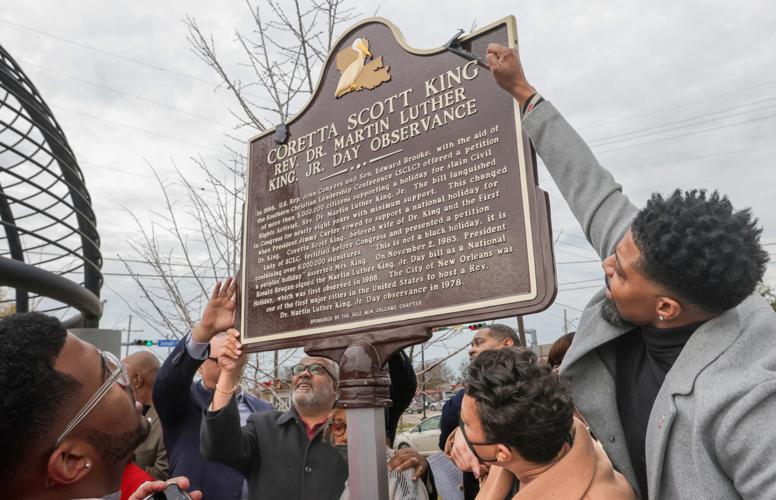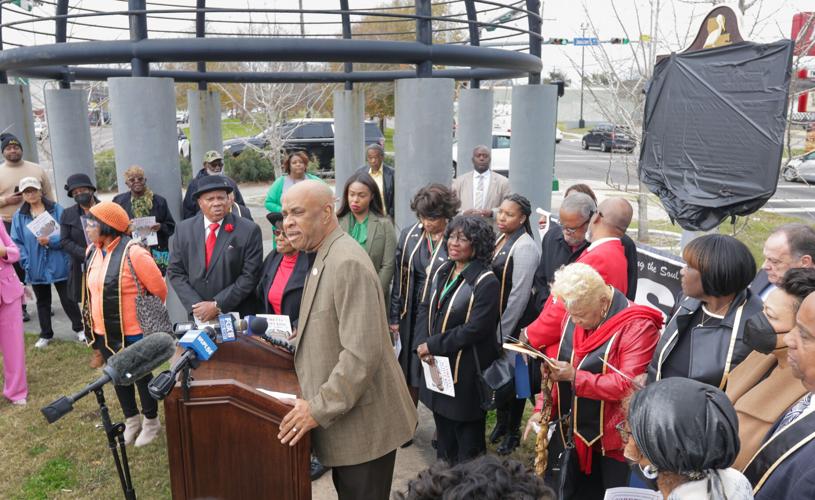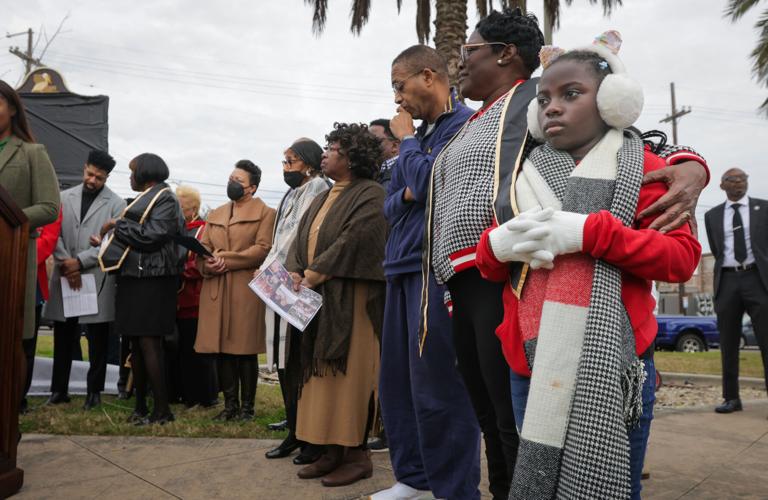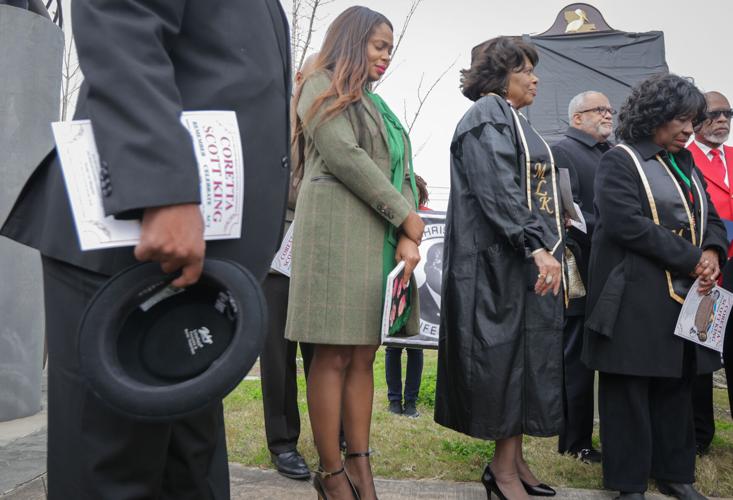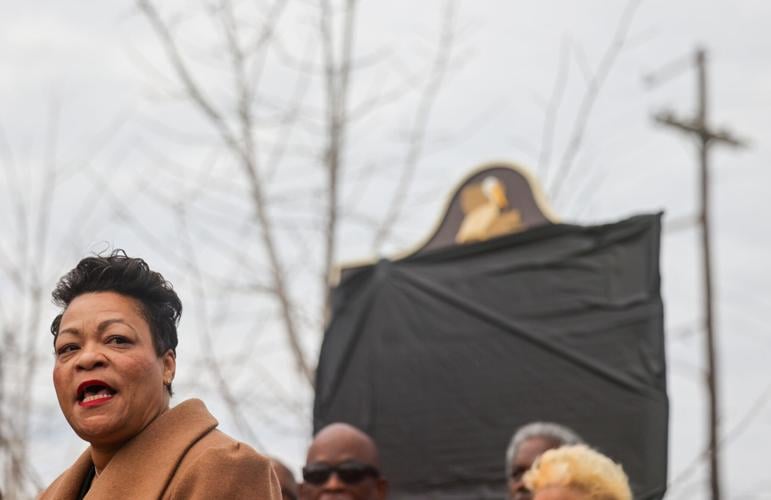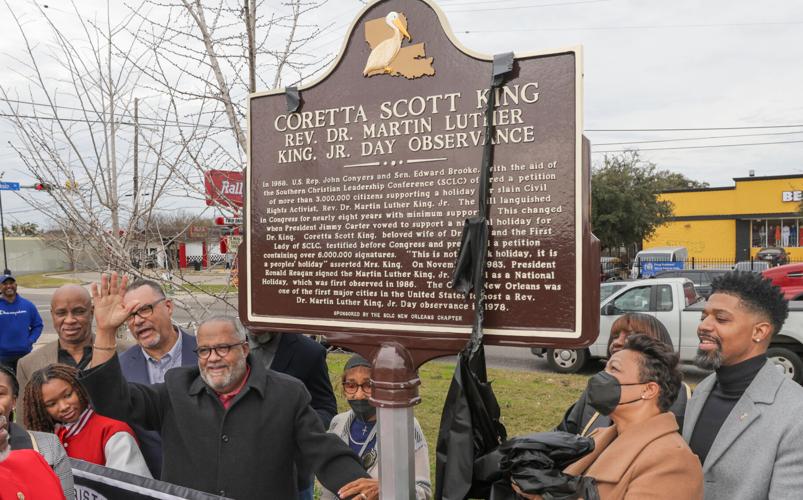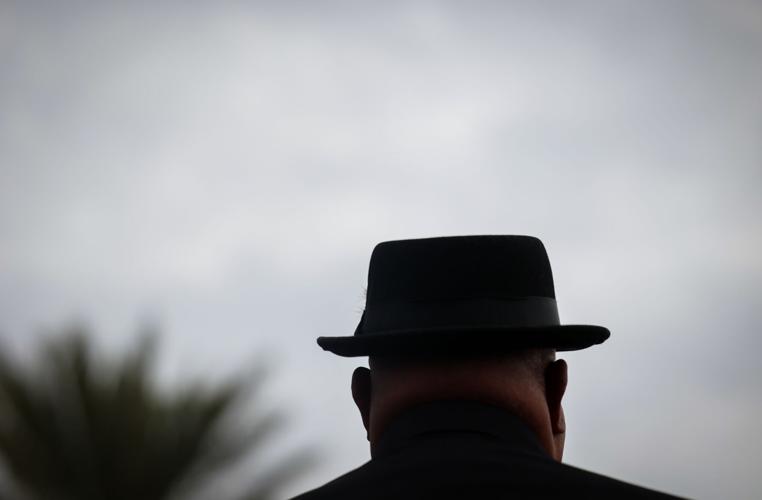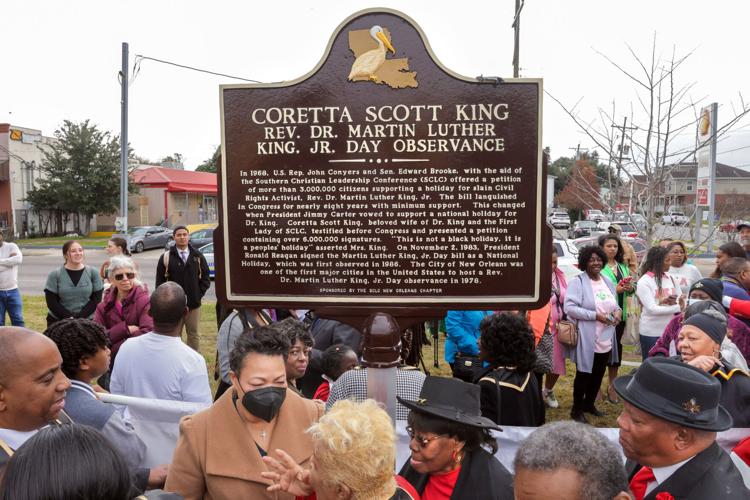Officials planted a new historic marker in the Claiborne Avenue neutral ground on Friday to recognize the work of Coretta Scott King, who fought for a national holiday recognizing the legacy of her husband, slain civil rights leader Martin Luther King Jr.

Mayor LaToya Cantrell speaks as people gather for the unveiling of a historic marker dedicated to civil rights activist Coretta Scott King on the neutral ground near South Claiborne and Jackson avenues in New Orleans on Friday, January 5, 2024. (Staff photo by Brett Duke, The Times-Picayune)
With the annual holiday approaching on Jan. 15, the plaque is the first of several that advocates hope to erect in honor of civil rights leaders whose work was less widely recognized, said Rev. Levon LeBan, president of the New Orleans chapter of the Southern Christian Leadership Conference, which spearheaded the effort.
U.S. Rep. Troy Carter, Mayor LaToya Cantrell and City Council member Oliver Thomas were among those who gathered at the busy intersection of Claiborne and Jackson Avenue to unveil the marker. It is located next to a small rotunda honoring civil rights leaders and a block away from a statue of Martin Luther King Jr.

U.S. Rep. Troy Carter, left, reacts as a historic marker dedicated to civil rights activist Coretta Scott King is unveiled on the neutral ground near South Claiborne and Jackson avenues in New Orleans on Friday, January 5, 2024. (Staff photo by Brett Duke, The Times-Picayune)
LeBan said that SCLC is currently working on its application for a second marker to honor other "unsung women" of the civil rights movement. The group hopes to eventually create an "SCLC walkway."
"Men did a lot of work, but the woman was always behind the scenes," said Florida Carr Hargrove, board chair of SCLC's New Orleans chapter. "We didn't get a lot of credit, but we knew, and Jesus know, what we did. And we did an awful lot."
The plaque, which cost almost $3,000 and was paid for by the Louisiana Office of Cultural Development, notes the uphill battle Scott King endured to win a day of recognition for her husband. A bill to create a holiday for King "languished" in Congress for eight years, the marker says, but finally passed after Scott King, an author and activist, testified before Congress and presented a petition of over 600,000 signatures.
"This particular monument is a tribute not only to Coretta Scott King but to all of those who marched and demonstrated for a holiday for Dr. King," LeBan said.
King made multiple visits to New Orleans, including in February 1957 to attend the founding meeting of the Southern Christian Leadership Conference at New Zion Baptist Church in Central City. King was elected president of the new group, and several of its officers were from Louisiana. The month before that meeting, King had been in New Orleans to speak at the Coliseum Arena on North Roman Street.
New Orleans was one of the first major U.S. cities to host an observance for Martin Luther King Jr. day in 1978.

